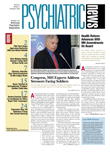A new formulation of oxycodone designed to curtail widespread abuse of OxyContin, a long-acting tablet containing oxycodone, recently received support for marketing approval from a panel of advisors to the Food and Drug Administration (FDA).
Purdue Pharma manufactures the current OxyContin tablet formulation, which is designed to release oxycodone hydrochloride slowly through a controlled-release coating. However, a large amount of oxycodone can be released if the tablet is crushed into a powder, which allows the active drug to be absorbed quickly when it is smoked, snorted, or injected after being dissolved in water.
The new formulation adds a resin coating to the tablet formulation, which is then more resistant to chewing or crushing than is the current formulation, Purdue maintains. The resin additive also makes it harder to dissolve oxycodone from the tablet into a solution. FDA reviewers of the new drug application concluded that “the tamper-resistant properties of the reformulated OxyContin are limited, but … may provide an advantage over the currently available OxyContin.”
At a September 24 joint meeting, the Anesthetic Life Support Drugs Advisory Committee and the Drug Safety and Risk Management Advisory Committee voted 14 to 4, with one abstention, in favor of approving the new formulation. The FDA is not required to follow advisory committee recommendations but usually does so.
This reformulation of OxyContin was previously reviewed by an advisory committee in May 2008. At that time, Purdue proposed to market only the lower dosages (10 mg to 40 mg) in the new formulation. The committee turned down the application, citing insufficient data to prove the reduced abuse potential and concerns about the continued availability of the current formulation in higher dosages (60 mg and 80 mg).
Abuse of and addiction to prescription narcotics have been growing problems in the United States in recent years. The latest survey conducted by the federal Substance Abuse and Mental Health Services Administration showed that misuse of prescription pain relievers had steadily increased among young adults aged 18 to 25 from 4.1 percent in 2002 to 4.6 percent 2008.
If the new formulation is approved, Purdue plans to stop distributing the current OxyContin product and replace all dosages with the new formulation. The company also stated in an announcement that it is discussing with the FDA development of a postmarketing surveillance plan and a risk evaluation and mitigation strategy, as required for certain opioid analgesics, for the new OxyContin formulation as a way to minimize the risk of abuse and overdose.

